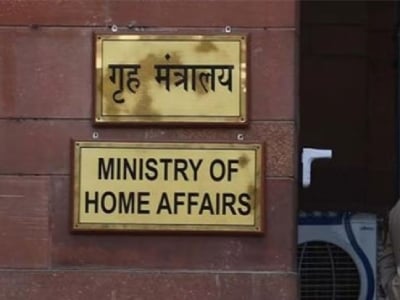By Durgesh Nandan Jha
New Delhi: It contributes just five per cent to the annual budget of St Stephen’s College,but the Church of North India (CNI) wants to impose its own set of rules on the institution.
The college’s acting principal Rev Valson Thampu justified the violation of the law of the land and the Supreme Court directive on the grounds that as a minority institution, the college had all the rights to work for the uplift of its own community. Thampu said that the 95 per cent contribution by the University Grants Commission (UGC) was nothing considering the fact that the land, infrastructure and maintenance charges were being met from the contribution by the Christian community.
Like all other trust colleges of Delhi University, St Stephen’s College too gets grants amounting to 95 per cent of its annual budget from the UGC. For instance, like the Shri Ram Foundation or the Ramjas Trust, the CNI contributes just five per cent of the annual budget. "This five per cent contribution too is collected through fees from students enrolled in these colleges," said a university official. "These trusts control the institutions by paying not a single penny," added the official.
"This college is run by the Christian community. The UGC’s annual grant of Rs 4 crore to 4.5 crore does not fulfill our demands. Though I cannot remember the exact amount spent by the college each year and the funding by the Christian community, I can firmly say that the maximum inputs for the running of this college comes from the Christian community and not from the UGC," said Thampu. When confronted with the fact that the UGC was meeting 95 per cent of the annual budgetary demand, Thampu said that the Christian community had bought the 33-acre plot on which the college was established. "The CNI bought this 33-acre land in 1937 without any concession applicable these days on purchasing land for educational institutions," he added.
The move by the CNI to provide reservation to constitutionally unrecognised Dalit Christians in the admissions to St Stephen’s College has stirred a hornets’ nest. Thampu, as the acting principal of the college, has been executing policies, which are in contravention of the Supreme Court directive, capping quota at 50 per cent. The new admission policy has taken the quota beyond the 50 per cent mark.
"Charity begins at home. First we have to work for our own community by whose money we are running this college," added Thampu completely ignoring the fact that the UGC grant was actually the taxpayers’ money that has no religion. The teachers and senior officials of the university hold the view that the college was misusing its minority status to implement the agenda of the CNI.
"There are more than 10 colleges in the university that are run by different trusts like the Shri Ram Foundation and the Delhi Sikh Gurudwara Management Committee. Also, there are Government-run institutions that are totally funded by the Delhi Government. Still, none of them have tried to bring their own rules," said a university official.
Ref: http://www.dailypioneer.com
Read More…
> Chirstianity Truths
> Mother Teresa : What is truth?

 Andhra Pradesh: Farooq kills mentally challenged Hindu man for insurance money
Andhra Pradesh: Farooq kills mentally challenged Hindu man for insurance money Pakistan: Ancient Hindu temple in Khyber Pakhtunkhwa demolished for commercial complex
Pakistan: Ancient Hindu temple in Khyber Pakhtunkhwa demolished for commercial complex UK: Over 50 children were sexually abused by paedophile catholic monks for decades
UK: Over 50 children were sexually abused by paedophile catholic monks for decades After Idukki diocese, Syro Malabar Catholic Church’s Thamarassery diocese screens ‘The Kerala Story’
After Idukki diocese, Syro Malabar Catholic Church’s Thamarassery diocese screens ‘The Kerala Story’ Ghana: 63-year-old Christian priest’s marriage to a 12-year-old girl sparks outrage
Ghana: 63-year-old Christian priest’s marriage to a 12-year-old girl sparks outrage MHA revokes FCRA licenses of 5 NGOs over charges including illegal religious conversions
MHA revokes FCRA licenses of 5 NGOs over charges including illegal religious conversions